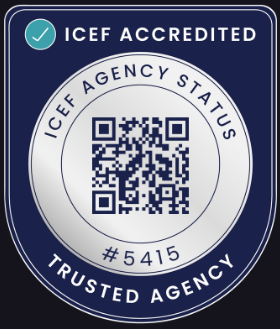Staying Safe Abroad: Essential Tips for International Students

Education abroad is a dream or students, it provide an ability to feel the other countries, to expand the specter of education, and receive a fantastic experience in learning. But when it comes to safety there are challenges that come with moving to a new country, new environment. In this case preparedness is the ultimate weapon that each foreign student should employ in order to avoid compromising his/her situation in a foreign country. Here below are some guidelines on how to keep safe during your study abroad and at the same time enjoy your trip.
1. Research Your Destination Thoroughly
Even while still in your home country, it is advisable that you get as many facts about the city or town you are to reside in as possible. This knowledge will help you fix your expectations to the actual local behavior in order to avoid causing some sort of offense. Every country has its etiquette concerning dressing code, and how you should behave in front of local authorities, therefore; understanding these remains safe from such incidents.
Thus, do not forget about cultural knowledge, as well as political climate and health issue of the country where you are going to travel. Government sponsored travel advisories of your home country, and World Health Organization (WHO), are useful sources of information for changes in the local safety situation, or health hazards, or natural disasters.
2. Secure Your Documents
One of the most important things that should not be done by the international students is to failure to gather and secure all important documents. These are your passport, visa and medical reports and insurance for the trip. These documents should be photocopied and kept in several places, and it is also wise to have at least one copy with you and another with a close relative and finally store it as a digital copy in safe online servers.
If you are going to travel, always take on you a photocopy of your passport and keep the original in a secure place. Most of the countries demand the foreigners to have ID with them at all times, while having the photocopy will assist in most occasions without having to use the actual passport.
3. Local Emergency Services
To ensure you are well acquainted with the facilities in your campus as well as the local emergency services below are some tips:
However, once you get there, do not rush ‘just’ get a feel of the layout of the place starting with the campus and the vicinity. Find out where the security offices, hospitals, and the police stations in campus are. Other numbers that should also be saved in the phone and on paper include the local emergency numbers, the number of the country’s embassy, and the school emergency contact number.
4. Adhere to the Adage of ‘Better Safe Than Sorry’
No matter if you are going to the class or this is just a walk around the city, be observant. Do not walk around with your headphones on or staring at your phone’s screen while walking in culturally different or poorly lit regions. It is importance to be always aware of your surrounding as it may help one to notice probably dangerous people and conditions like pick pocketing or any other form of insecurity then be in a position to avoid them or act as required.
5. Avoid Sharing Information on The Social Media Platforms
Traveling and being a student in another country is so much fun and breathtaking and the last thing you want to do is keep it to yourself but, be wise while posting on your social media platforms. Do not put into the web real-time information about where you are, where you are going or where you live. This may leave you at the mercy of racketeer, robbers or else harass you in the process.
6. Learn Essential Basic Phrases for Emergency Risks
Use Local Currency Practice Basic Civil Greetings and Learn Essential Basic Phrases for Emergency Risks. It is very essential to have a basic understanding of the local language of the country you are visiting As this can guarantee your safety most of the time. It will enable you to ask for directions, communicate in an emergency or read some signs that are very useful in different situations. They should primarily emphasize on the cases that involve learning special words which can be used to call for help such as ‘Help,’ ‘Police,’ or ‘I need a doctor. ’
7. Trust Your Instincts
One of the best defense mechanisms you will ever have at your disposal is your own instinct. If it just does not feel right, this is an indication that one should get away from that place. If you find yourself dealing with a stranger that may give you a strange feeling or a situation that one may feel is fishy, better be safe than sorry.
8. Stay Connected
It is essential to stay in touch with families and friends back home as it will help in your emotional requirement and security. That is why you should make a communication plan with your dear ones where you are to call not less often. This way they will notice there is a problem if you do not communicate as planned from your scheduled times.
9. Secure Your Living Space
Regardless of the type of accommodation which you will be residing in, be it student residence, homestay or an apartment, it is crucial to outline security measures that should be taken into consideration. Make sure your doors and windows are closed every time you leave and do not give out your codes or keys to anyone that you do not know and have faith in.
10. Travel Smartly
Travelling is, indeed, one of the key components of studying a foreign country but travelling has to be done in a smart manner. Any time one goes somewhere, he or she should notify someone of that move, the place where he or she is going and the time he or she will be coming back. Those who have to rely on taxis or on ride-sharing services should only employ the services of licensed and reputable providers.
11. Health and Well-being
This involves factors such as physical and mental health because the extent of one’s safety measures when in a foreign nation is determined by same a person’s state of health. As a reminder you should feed and coddle yourself to ensure that you exercise, have proper diet and sleep well. And do not forget, if someone feels stressed or homesick someone should search for help. Luckily, I don’t think there are many universities where counselling services for international students are unavailable so use them frequently.
12. Know Your Rights
For any international student this is an important piece of information in order to be aware of rights that one has in the host country legally. Learn the legal aspects of the country and these include the visa, work permit, and other legal constraints. I’ve heard that some countries has different rules for foreigners and some knowledge about your legal status can save you.
Conclusion
It is generally discouraged to take up study abroad programmes during your educational journey as the chances of unraveling thrilling experiences may shift dramatically to becoming your worst nightmare. With this in mind, it is always important to be prepared, be vigilant and act smarter in order that
your time e abroad is not just fun but also safe.
Contact Us
Contact us for a free consultation for student or visitor visas. Our immigration experts are ready to assist you.



